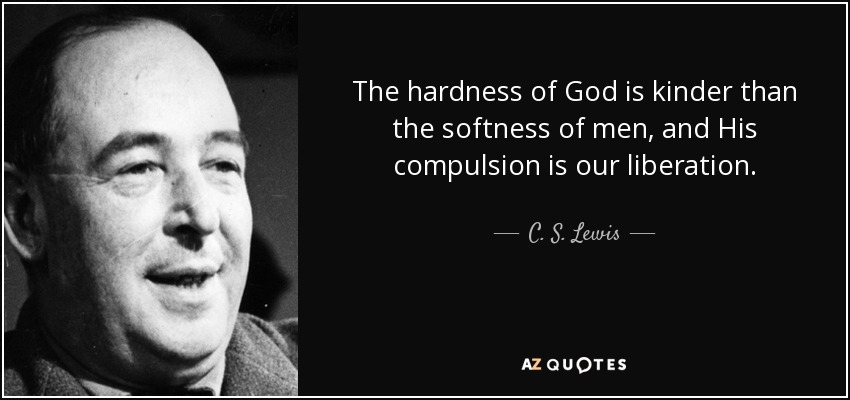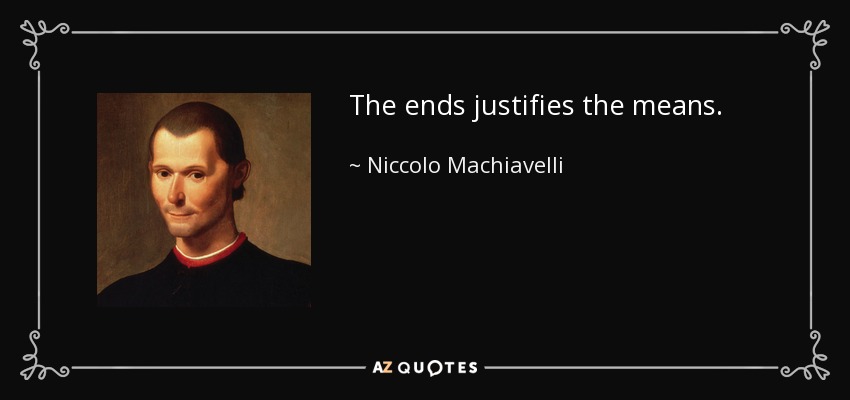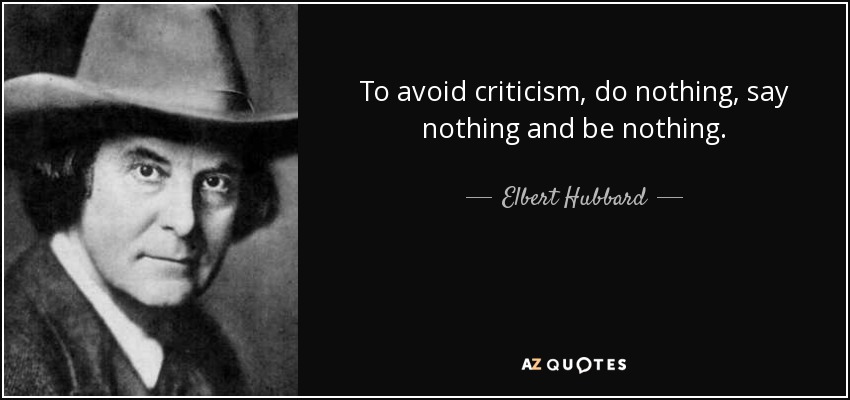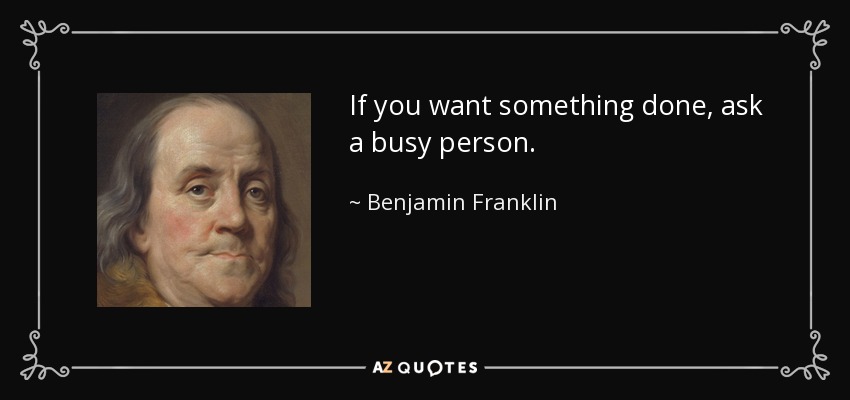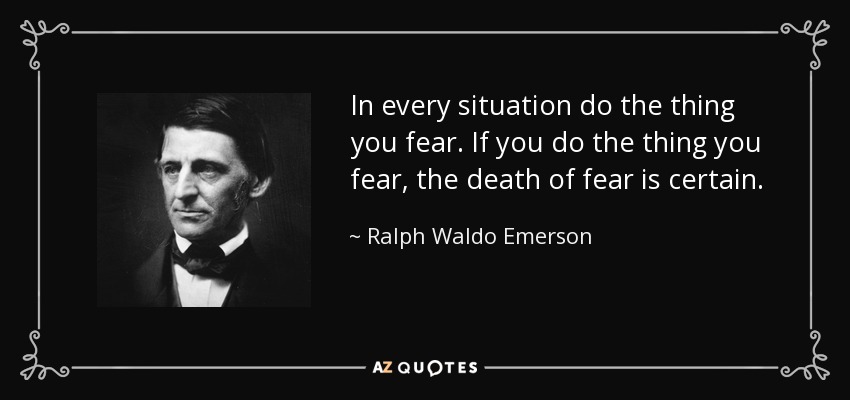Click here to return to Blog Post Intro
THE BEGINNINGS OF LEADERSHIP
By observing the life of Jesus, we learn an important leadership principle: The call to leadership must be confirmed. Whether in business, government, the military, academia, or even the home, people must earn the right to lead. All authentic leaders must be confirmed in order to lead.
PRINCIPLE 1: Even Jesus received confirmation as a leader. We too must be confirmed as leaders.
No one achieves anything alone; and this is especially true of leaders. After all, a leader achieves goals by working through other people. Every great leader is a product of his or her teachers, mentors, and other influences.
When a leader begins to think that he or she did it all himself or herself, that leader is in big trouble. You will never meet a self-made leader, a leader who has pulled himself up by his bootstraps. Every leader stands on the shoulders of giants.
Here are some thoughts that may help you to maintain a humble, Christlike attitude toward your own leadership role:
- All ability, including leadership ability, is a gift from God. John the Baptist said it best: “A person cannot receive even one thing unless it is given him from heaven” (John 3:27).
- We can do nothing to earn our leadership abilities.
- Leadership ability is no reason to boast. God gives leadership ability to some, and to others he gives the ability to recognize and follow leaders.
- We should give thanks to God for our leadership abilities.
- We should acknowledge those who have helped us on our leadership journey.
PRINCIPLE 2: Great leaders acknowledge the giants who preceded them.
THE QUALITIES OF LEADERSHIP
Jesus, the Good Shepherd, said, “I know my own and my own know me.” But a shepherd who does not love the sheep does not care to know the sheep as persons. To a shepherd who does not love, the sheep are just members. In many churches today, they call them audiences.
The leader who practices shepherd-leadership knows his sheep personally and cares about them individually. In the traditional top-down leadership model, the leader remains aloof from the followers. A true shepherd-leader knows, serves, and sacrifices for the sheep.
Good shepherd-leaders guide their sheep toward still waters, away from the turbulence of divisiveness. When the sheep stumble and fall, good shepherd-leaders use the shepherd’s staff to comfort the sheep—not to goad them or beat them. Bosses control the sheep by inflicting fear; wise shepherds guide and comfort the sheep.
Great leaders and organizations need to stay flexible and keep moving forward without abandoning their values. Great leaders know how to care for people, while also being nimble and responsive to change in the marketplace. Authentic leaders know how to keep moving forward without leaving willing followers behind.
Leaders are people of vision. A leader sees a future no one else can see, and then takes his followers there. As the visionary shepherd of your flock, you must always have the welfare of your sheep at heart. They should always feel that they are a part of your vision.
A shepherd-leader is never too busy to listen to the sheep and learn from them. That is a key element of Christlike leadership—the balance between compassionate caring for the followers and effective motivation of the followers to move out and achieve the vision.
PRINCIPLE 3: Good shepherds know their sheep. Good leaders know their followers.
God, through Moses, had given a commandment about the Sabbath: “Remember the Sabbath day, to keep it holy. Six days you shall labor, and do all your work, but the seventh day is a Sabbath to the LORD your God” (Exodus 20:8-10). But over the years, the religious leaders had added hundreds of man-made laws to God’s simple command, and these legalistic requirements had kept the Jewish people oppressed.
Jesus was willing to break with custom and tradition and man-made rules in order to meet desperate needs. If a man needed healing, Jesus didn’t consult the Pharisees’ rule books to see if healing were allowed on that particular day. He put compassion and mercy ahead of rules and regulations. Someone once said, “The religious leaders loved things and used people, but Jesus loved people and used things.”
The Law of Moses was intended to protect, preserve, and instruct God’s chosen people, Israel. Over time, however, the rational and compassionate Law of God was reinterpreted into an irrational and oppressive maze of regulations.
Jesus had a “back to basics” leadership style. He knew God’s laws were meant to help people live fulfilled and purposeful lives, not hinder them and oppress them. So, He put the emphasis back where it belongs—on compassion, love, faithfulness to others, and obedience to God. Instead of focusing on outward rituals and rules, Jesus focused on the inward reality of the heart.
The leadership style of Jesus puts people first, man-made rules second. A Christlike leader must be willing to change customs, modify traditions, and turn sacred cows into hamburger for the sake of the authentic and true needs of people. We should continually evaluate our rules, regulations, customs, and traditions, making sure they are truly biblical and they continue to serve a positive function in our lives. A genuine leader demonstrates love for others by adapting human traditions to meet human needs.
PRINCIPLE 4: Authentic leaders place human needs ahead of human customs.
When Nicodemus came to Jesus at night in John 3, Jesus responded to him with a riddle: “You must be born again” (John 3:7). Apparently, Jesus had never read How to Win Friends and Influence People. Dale Carnegie could have told Jesus that he was violating the rules of good salesmanship by confronting Nicodemus with a baffling spiritual requirement. And Jesus would have replied, “But I’m not selling anything. I’m preaching the truth: You must be born again.”
By the standards of modern salesmanship, Jesus made one of the worst mistakes possible in his late-night talk with Nicodemus. Jesus would not water down his message. He stated his message boldly and forcefully, without compromise, whether he was speaking to the lowest outcast of society or a member of the Pharisee elite. Jesus didn’t treat the gospel as a product to be packaged and sold. Jesus the Messiah never made an exaggerated sales pitch, never watered down the truth, and never compromised his unconditional love. He always spoke the truth in love.
God did not send us out into the world to be successful. He sent us out to be faithful and to speak his truth.
PRINCIPLE 5: In my servant leadership, I can have courage for every leadership battle.
One of the key qualities of the leadership style of Jesus is gentleness. We should not confuse His meekness with weakness.
Nowhere is the gentleness of Jesus displayed more clearly than in the story of the woman caught in adultery. First, Jesus accepted her. When the religious leaders dragged the woman before Jesus, she wasn’t the only sinner there. Second, Jesus forgave her. “Neither do I condemn you,” he said. “Go, and from now on sin no more.” Jesus embodied grace as well as truth, and the grace of Jesus was expressed as gentleness.
In all of his interactions with people, he struck the perfect balance of afflicting the comfortable and comforting the afflicted. In our culture, we tend to think of gentleness (and related qualities like humility and meekness) as weakness. We tend to err toward being either all truth (being blunt and rudely confrontational) or all grace (being so mild and wimpy that we compromise the truth). Jesus is the epitome of grace and truth in perfect balance.
The leadership quality of gentleness consists of three ingredients:
- Kindness or Consideration. An authentically gentle leader demonstrates consideration for the feelings of others.
- Submission—submission to the will of God, a willing obedience to God’s Word and God’s leading. Another word for submission is meekness. Meekness does not mean timidity or shyness; it means power under control.
- Teachable Spirit—a willingness to learn and to be corrected.
From a Christian perspective, gentleness and meekness actually mean “strength under control.” A gentle leader is smart but feels no need to prove it, strong but feels no need to demonstrate it, confident but feels no need to tear others down. The gentle leader is strong, but keeps his or her strength under control.
Many leaders look down on those who are gentle, thinking they are weak, ineffective, or even stupid. But Jesus showed us that gentleness is strength.
PRINCIPLE 6: Only the leader who is truly strong can be truly gentle.
There is a common image of leaders as people who are ruthlessly ambitious, and who will step on anyone to get what they want.
According to the business mentoring company Management Mentors, the generosity of top executives, as expressed through mentoring, is a key factor in successful careers and organizations:
- Fully 75 percent of executives list mentoring as a key factor in their career success.
- The productivity of managing executives increased 88 percent when mentoring was involved.
- 71 percent of Fortune 500 companies (that is, the most successful companies in the world) use mentoring as a key training tool.
- 77 percent of businesses say that mentoring programs increase employee retention.
Some of the ways authentic leaders show Christlike generosity include:
- They generously give their time. Christlike leaders see themselves as servants not bosses. They don’t hoard their time; they invest their time in others.
- They generously give their attention.
- They generously give of their experience. The best leaders have learned many lessons in their leadership careers. Great leaders who follow the leadership style of Jesus are generous with their resources, their time, their wisdom, and their insight.
PRINCIPLE 7: Authentic leaders give generously.
Leaders must face the truth and they must tell the truth, especially when the truth is unpleasant to hear. Jesus embodies truth. He stands for truth. He will not deviate from the truth. There is no greater leadership example of truthfulness for us to follow than the example of Jesus. As John wrote in the first chapter of his gospel, “For the law was given through Moses; grace and truth came through Jesus Christ” (John 1:17).
If you ask for someone’s honest opinion, never be dismayed when they give it to you. It is natural for most people to want to avoid unpleasantness, confrontation, or hurting people’s feelings.
Jesus taught that we should have an absolute regard for the truth. He didn’t want us to put ourselves in the position of swearing to a promise that we might later be unable to keep. He didn’t want us to invoke the name of God to bind our word.
When we use the truth to hurt others, or to divide friend from friend, or to belittle or degrade someone, we are using the truth maliciously and sinfully. When we speak the truth in love, God’s Spirit speaks through us. The leadership style of Jesus reminds us that authentic leaders must always speak the truth, always live the truth, and always handle the truth with love.
PRINCIPLE 8: Authentic leaders love the truth, and they speak the truth in love.
The first Christians learned forgiveness from the example of Jesus himself. At the darkest moment of the Lord’s life, he pleaded with the Father to forgive his executioners.
Authentic forgiveness not only says, “I hold nothing against you,” but it also wants the guilty person to be forgiven by God as well. In order to express forgiveness to others, we need to experience forgiveness.
As leaders following the leadership style of Jesus, opposing sin in our lives and the lives of those who follow us is a must. Yet we also must offer forgiveness and a pathway to mend the relationship and restore the sinner to a place of usefulness and wholeness. We can, with God’s help, make an effort to forgive and forget.
An elderly Yankee woman with a fiery temper rebuked President Lincoln for speaking kindly about his enemies. “You ought to be thinking of how to destroy them,” she said. “Why, madam,” President Lincoln replied, “do I not destroy my enemies when I make them my friends?”
If we actively work toward reconciliation, forgiveness, and healing, and if we expect God to answer that prayer, it will happen. God will bring healing to our deepest hurts.
PRINCIPLE 9: Authentic leaders forgive because they have been forgiven.
THE TEMPTATIONS OF LEADERSHIP
Machiavelli taught that leaders must be ruthless in the pursuit of power, that they should maintain an outwardly moral reputation but be willing to act immorally to maintain power.
Machiavelli seems to be saying that even immoral actions are justified if they produce a desirable outcome. To this day, a scheming leader who will do anything for the sake of power is described as “Machiavellian.”
By contrast, Jesus of Nazareth taught and modeled a leadership style based on morality, truthfulness, servanthood, humility, and meeting the needs of others. Over and over, Jesus taught His disciples a new and paradoxical form of leadership: In the kingdom of Jesus, the leader is the one who serves, and the servant is the one who leads. Jesus came to stand position power on its head.
In an interview with Truett Cathy of Chick-Fil-A on Fox News Channel, host Neil Cavuto said, “Mr. Cathy, they say you can’t be a nice guy in this business. It’s a rough world, you have to be tough. What do you say?” “Well,” Cathy replied, “I think the opposite. I think the kinder you are to your people, the more productive they will be and the more customers you will be able to attract. I think I kind of look upon being in the restaurant business as a divine calling.”
There is a symbol of Jesus’ leadership and Christianity that we rarely see: the symbol of the basin and towel. This is the symbol of humble Christian service. The basin and towel are the tools of the Servant-Leader who washed His followers’ feet.
PRINCIPLE 10: Authentic leaders derive their greatest power from obeying God and serving others.

When the disciples offered Him food as He sat beside a well in Samaria, Jesus said, “My food is to do the will of Him who sent me and to accomplish His work” (John 4:34). By this leadership example, Jesus taught His disciples that their mission in life was also to do the will of God the Father, not feed their own egos.
An authentic leader cannot be insecure. He or she cannot be continually fearful of losing the leadership position. Leaders must be confident of God’s leading in their lives and confident in the gifts and abilities God has given them. Leaders who live to please Jesus instead of pleasing other people have far less stress and anxiety to deal with.
PRINCIPLE 11: Genuine leaders are secure in Jesus Christ and have no need to protect or defend their egos.
Jesus instructed a leprous man, “Stretch out your hand.” The man did so—and his hand was fully restored. Enraged, the religious leaders went out and plotted to kill Jesus (Mark 3:1-6). Isn’t that ironic? Jesus asked them if it was lawful to do good on the Sabbath or to kill? They refused to answer his question. And when Jesus healed the man, they went out to plot murder on the Sabbath! Who, then, were the real Sabbath-breakers in this account?
A leader should be a person who is slow to anger, who keeps his anger under control, and who does not let his anger lead him to sin. Righteous anger has motivated many important reform movements over the years, including the abolition movement to end slavery, the civil rights movement, the anti-drug-abuse movement, and efforts to end child abuse, child neglect, and child pornography. That’s the proper use of anger—to fight injustice, protect the innocent, and solve problems.
Here are four steps to managing anger:
- Accept personal responsibility for our emotions. We have to stop making excuses for our lack of self-control.
- Understand what anger does to us. Anger causes physiological changes in the body because our bodies are actually preparing us for a fight. Anger mobilizes us for action.
- Study the example of Jesus. Jesus always controlled his anger. He directed it against hypocrisy and injustice. He used his anger to solve problems.
- Make sure that we direct our anger at problems, not people. The old saying applies: “Hate the sin, but love the sinner.”
PRINCIPLE 12: Like Jesus, authentic leaders express anger in healthy ways.
THE PROBLEMS OF LEADERSHIP
Marketing experts and public relations strategists might have concluded that He was going about it all wrong. First, Jesus targeted the wrong demographic group. He wasted His time and effort preaching to the poor, the sick, the despised tax collectors, the political zealots—the very dregs of society. Second, Jesus alienated the rich and powerful. It wasn’t bad enough that He pitched His message to the poor and powerless, but He actually went out of His way to stir up conflict with the top echelon of society. Jesus was a poor salesman.
Successful salespeople know how to highlight the benefits of the product, overcome objections, sweeten the offer, and close the sale. Jesus had a tendency to highlight the costs, provoke objections, and remind people of the drawbacks to following him.
Jesus was uncompromising. He didn’t seem to know how the game is played—you have to go along to get along. Instead, He listened to God. Here are some suggestions for learning to hear God’s voice more clearly:
- Continually search your motives. We need to check our plans against God’s Word and make sure that we are obedient to his will for our lives.
- Continually seek guidance from God.
- Be accountable to some trusted Christian friends.
As leaders following the leadership style of Jesus, at times we may feel called by God to go in a specific direction—a direction that defies all the counsel we received from Christian friends and advisers. Before we commit ourselves to such a course, we need to take every precaution to make sure we are certain of God’s will. We need to make sure we are acting out of conviction and obedience, not stubbornness and self-will. But once we know that God is calling us to a certain course of action, we must do it, even if no one else agrees. We must stand alone, with no support but God’s.
If you ever feel lonely in leadership, remember Jesus on the cross—the loneliest, most abandoned, most rejected leader in the history of the world. We can gather around us a circle of supporters, people who will pray for us and advise us and support us during those moments of lonely decision. But leaders must ultimately make the lonely decisions.
PRINCIPLE 13: One authentic leader plus Jesus the Lord equals a strong majority.
Women were not permitted to be witnesses in legal proceedings, so when Jesus made Mary Magdalene the first witness to the resurrection, He elevated and affirmed the status of all women.
After the resurrection, Peter was repentant but filled with shame and self-reproach because of his cowardice and defection. Jesus elevated and affirmed Peter and restored him to a position of leadership in the newly founded church.
Leaders are often called upon to deal with doubters like Thomas—managers, employees, team members, soldiers, church members, or family members who have a pessimistic mindset, who do not believe in the leader’s vision and goals, who do not expect success or victory, who are skeptical and doubtful and generally gloomy. Pessimistic doubters often sow discord, discontent, suspicion, and division in an organization. Doubters turn conversations into arguments.
Stubborn, pessimistic doubt is at the root of division and strife in countless organizations, teams, churches, and homes. The way the Lord dealt with Doubting Thomas is a masterful blend of toughness and tenderness, rebuke and restoration. After inviting Thomas to inspect the physical evidence, and after Thomas responded by expressing his belief, Jesus said, “Have you believed because you have seen me? Blessed are those who have not seen and yet have believed” (see John 20:24-29).
When a habitual doubter questions your leadership, your vision, your goals, or your agenda, his problem may not be a lack of evidence. His problem may be his own pessimistic and distrustful disposition.
PRINCIPLE 14: Authentic leaders turn doubters into believers.
Of course, anyone who says nothing and does nothing is, by definition, not a leader. To be a leader is to be a target for criticism. Jesus was opposed by critics throughout His ministry. His opponents hated Him for many reasons, including jealousy over His popularity and resentment of His power to heal diseases and restore sight to the blind. All their reasons for hating Jesus were unjust, selfish, and sinful.
Most people who are in leadership for any length of time eventually encounter people who hate them without cause. Most leaders experience criticism rooted in jealousy, envy, and spite. Learning how to deal with unjust criticism is one of the most important lessons a leader must learn.
Orlando Magic cofounder Pat Williams observed, “Wise leaders hunger for constructive criticism more than praise because criticism instructs; praise does not.” Very often, Jesus simply refused to respond to criticism. Sometimes the best reply to a false accusation or unjust criticism is silence. Don’t even dignify a scurrilous accusation with an argument. At other times, it may be best to counter a false accusation with logic and evidence so that you can expose and defuse it. Pray, ask God for wisdom, and make a leadership decision as to the best response to that false criticism.
Here’s a three-step approach for receiving and sifting the criticism you receive as a leader:
Step 1: Listen. If you would learn and grow from the criticism you receive, then be a leader who listens.
Step 2: Ask Yourself, “Is It True?”
Step 3: Prepare for Future Criticism. A leader must always expect criticism. Some criticism will be fair and accurate, and some won’t. A leader should never be caught off guard by criticism.
While it’s important to listen to the voices of our critics so that we can learn and grow from valid criticism, we also need a godly sense of perspective. We need to distinguish between a vocal minority and the often-silent majority—and we need to remember that it’s the majority that counts. Where does this criticism come from? Is everyone against me? Or merely a few malcontents?
PRINCIPLE 15: Only one leader was ever perfect, and they criticized him too.
It’s a leader’s job to look at the big picture, to see the mountain, and to lead the organization to the summit. Unfortunately, all too many leaders never reach the mountaintop because they get tripped up by molehills.
When Jesus caught His disciples bickering about who was the greatest, He confronted their pettiness head-on. That’s what great leaders do. They inspire greatness, and they focus their followers’ attention on the things that truly matter. When followers are focused on climbing the mountain, they have no time for molehills.
As leaders, we need to remember that we cannot and should not treat everyone in the organization alike. Yes, we should try to treat everyone fairly, but that’s not the same thing as treating everybody alike.
Baseball player Dusty Baker had a long major-league career as an outfielder, and then as a manager. He says that his service in the Marine Corps was great preparation for his baseball career, both as a player and a manager. In the Marines, he said, “I learned a lot about teamwork.” In a team environment, teammates have to be committed to each other, looking out for each other and even being willing to sacrifice themselves for each other—“even if you don’t like him and he doesn’t like you. That’s teamwork.”
Whether we like someone or not is a petty matter. But whether we truly love one another is the heart and soul of the Christian faith.
PRINCIPLE 16: Wise leaders keep petty problems from growing into major problems.
THE FUTURE OF LEADERSHIP
We keep going to the same people again and again, asking them to lead. There is latent leadership potential all around us, but we don’t see it.
Instead of identifying a few strong natural leaders and working them to the point of burnout, do what Jesus did: Look at your followers from a whole new perspective. Look at the quieter people, the people who don’t stand out as much from the crowd, but who have skills and interests and talents that could be powerful assets in a leadership role.
Most leaders learn on the job. If you want to develop leaders in your organization, give them work to do. Religious leaders looked at these men and saw nothing special in them—no talent, no ability, no education, no aptitude for leadership. Jesus looked at them and saw limitless potential.
When recruiting new leaders, look for character qualities, integrity, hard work, moral virtue, and faithfulness. You can easily build leadership skills and competencies on a foundation of strong character. Always remember that at least 85 percent of your potential leaders are as yet unrecognized, have never been called, and are just waiting for you to tell them, “I think you can lead.”
PRINCIPLE 17: Leaders are chosen and gifted by God, but we have to discover and develop them.
One of the key lessons we learn from the leadership life of Jesus is that the purpose of leadership is not to produce followers, but to produce more leaders.
As leaders, we need to give our followers responsibility before they feel ready for it. We need to put them into leadership while their confidence is still a bit shaky, while their knees are still knocking and their voices still quavering.
If you wait until people feel they’re ready for a challenge, you’ll have a long wait. But if you encourage them to take on leadership challenges before they think they’re ready, they’ll learn on the job, acquire new skills and confidence—and they will achieve great things.
As we study the Old Testament, we see that God employed this same approach when He raised up leaders in Israel. He chose people who felt inadequate and unprepared, and He thrust them into the great crises of history.
Jesus used four methods to train His followers to become leaders:
- Teach precepts, instructing followers in leadership principles, imparting wisdom and knowledge, and setting forth rules of moral conduct.
- Teach by example. In other words, be a role model so that your followers can pattern their lives after yours. Leadership is as much caught as it is taught. Ralph Waldo Emerson once wrote, “What you do speaks so loud that I cannot hear what you say.”
- Demonstrate by results. Jesus produced results.
- Point to the witness of others. Leaders need to be confirmed in their leadership role.
PRINCIPLE 18: Authentic Christlike leaders disciple others who become leaders who disciple others.
May you emulate the Leadership Style of Jesus, as you shoot for the stars!


